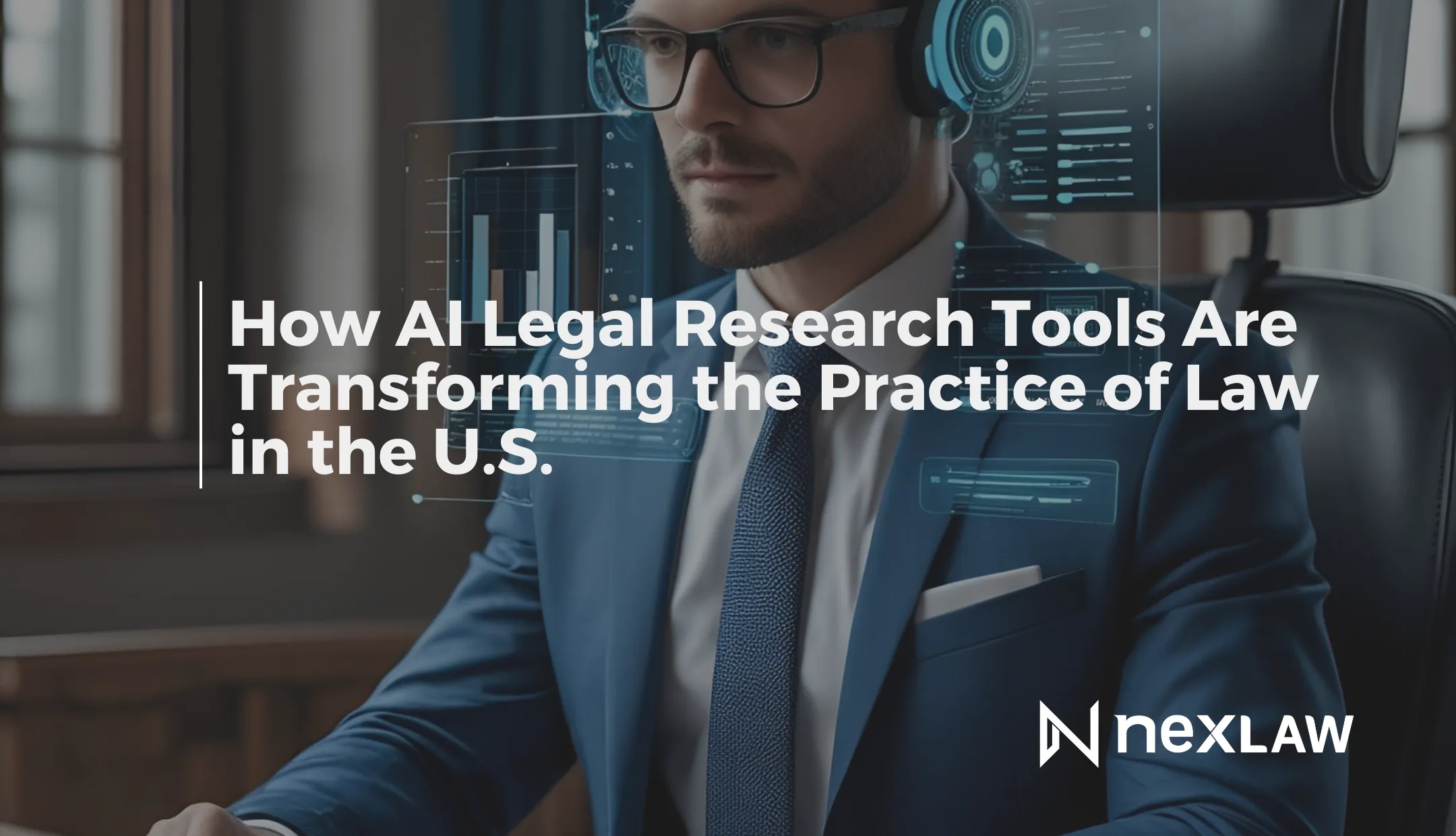Law Firm eDiscovery Solutions 2026: AI Adoption and Industry Transformation
Law firm eDiscovery solutions have reached a transformative milestone in 2026, with artificial intelligence adoption skyrocketing from 19% in 2023 to an unprecedented 79% in 2024 across legal practices. This dramatic surge reflects the legal profession’s recognition that AI-powered discovery capabilities are essential for competitive advantage and operational efficiency.
Unlock Legal Insights Instantly!
Mid-sized law firms are leading this technological revolution, with 93% of surveyed legal professionals now using AI in some capacity, while over half have adopted AI widely or universally. This adoption rate significantly exceeds smaller firms, where only 72% utilize AI capabilities and just 10% have implemented widespread integration.
The legal technology market’s explosive growth, projected to reach $32.54 billion by 2026, underscores the critical importance of modern eDiscovery solutions for law firm sustainability.
Current State of Law Firm eDiscovery Adoption
AI Integration Patterns Across Practice Areas
Recent industry analysis reveals significant variation in eDiscovery AI adoption across different legal practice areas. Immigration practitioners lead individual AI adoption at 47%, followed by personal injury attorneys at 37% and civil litigation specialists at 36%. Criminal law and family law practitioners show adoption rates of 28% and 26% respectively.
At the firm level, civil litigation practices demonstrate the highest organizational AI adoption at 27%, followed by personal injury and family law firms at 20% each. This disparity between individual and firm-level adoption reflects challenges many law firms face in developing comprehensive AI policies balancing innovation with ethical concerns.
Leading firms are investing in comprehensive training programs and establishing clear guidelines for AI usage across all practice areas, recognizing that systematic integration approaches yield superior results compared to ad-hoc individual experimentation.
Cloud-Based Solution Migration Trends
Law firms are accelerating migration to cloud-based eDiscovery solutions, with approximately one-third implementing cloud-based document management models. Cloud computing adoption among law firms increased by 10% in just one year, reflecting growing confidence in cloud security.
Cloud-based discovery platforms offer law firms significant advantages:
- Enhanced collaboration capabilities across geographic locations and remote teams
- Scalable storage and processing power adjusting to case-specific requirements
- Automatic software updates and security enhancements without IT overhead
- Cost-effective pricing models eliminating large upfront infrastructure investments
This shift is particularly pronounced among firms handling complex litigation involving multiple jurisdictions and extensive data volumes, enabling real-time collaboration while maintaining required security standards.
Technology Investment Priorities for Law Firms
Integration-Focused Solution Selection
When evaluating eDiscovery solutions, 43% of legal professionals prioritize integration with existing trusted software as their primary selection criterion. Additionally, 33% highlight the importance of vendors understanding specific workflows, while 29% express greater trust in legal-specific tools compared to generic consumer options.
Successful implementations require seamless integration with practice management systems, billing platforms, client communication tools, and court filing systems. Leading solutions provide pre-built connectors and API-driven connectivity eliminating manual data transfer requirements.
Cost Management and ROI Measurement
Cost considerations remain the ultimate motivation for eDiscovery technology purchasing decisions across law firms. The industry’s focus on demonstrating clear return on investment has intensified as firms face pressure to justify technology expenses while maintaining competitive billing rates.
Modern solutions address cost concerns through:
- Predictive analytics identifying relevant documents early in discovery
- Automated review capabilities reducing manual attorney time requirements
- Efficient workflow orchestration minimizing redundant processing steps
- Transparent pricing models providing cost predictability across varying case sizes
Firms implementing advanced solutions report significant productivity improvements, with some achieving up to 75% reductions in document review time through automated workflow management.
Generative AI Impact on Law Firm Operations
Document Review Automation Advancement
Despite tremendous potential for AI innovation in document review, this phase remains a key cost contributor in 2026. However, leading law firms leverage AI as first-level reviewers to manage rapidly growing data volumes while maintaining quality standards.
The two most common automated review use cases include responsive versus non-responsive document classification and privileged versus non-privileged determinations. Advanced AI systems learn from attorney decisions to automatically apply classification logic to new documents, dramatically reducing manual review requirements.
Generative AI capabilities now enable automatic generation of preliminary document summaries, privilege pattern identification, and initial privilege log drafts. These features represent significant advancement from traditional keyword-based approaches toward intelligent legal assistance augmenting attorney capabilities.
Strategic Implementation Challenges
Survey data reveals that 62% of in-house legal professionals believe their outside law firms lack innovation, with 78% specifically encouraging firms to adopt generative AI technology to reduce costs. This disconnect highlights pressure law firms face balancing client expectations with responsible AI implementation.
Law firms report several challenges in AI adoption:
- Ethical considerations regarding accuracy and professional responsibility
- Data security concerns when handling sensitive client information
- Training requirements for attorneys and support staff
- Policy development for appropriate AI usage across practice areas
Successful firms address these challenges through comprehensive AI governance frameworks establishing clear guidelines while providing ongoing training and support.
Proactive eDiscovery Strategies
Information Governance Integration
Leading law firms implement comprehensive information governance programs preparing clients for potential legal challenges. This proactive strategy includes automated data mapping, regular compliance audits, and sophisticated retention policies reducing discovery costs and complexity.
Progressive firms leverage predictive analytics to identify potential legal risks before materialization, allowing proactive response strategy development. This approach reduces discovery costs and time while helping organizations maintain better control over digital assets.
Zero-trust security frameworks have become standard practice, requiring continuous verification at every discovery stage. This comprehensive security approach addresses growing cybersecurity concerns while ensuring client data protection throughout the discovery lifecycle.
Cross-Border Compliance Management
Law firms handling international matters face increasingly complex challenges related to cross-border data transfers and conflicting privacy regulations. Modern solutions address these through automated compliance checking and jurisdiction-specific workflow management.
Advanced platforms provide real-time guidance on data handling requirements across different legal systems, enabling compliance maintenance while efficiently managing international discovery obligations.
How NexLaw’s NeXa Platform Enhances Law Firm Discovery
NexLaw’s NeXa Expert Mode provides law firms with specialized capabilities complementing traditional eDiscovery solutions. The platform’s Deep Research functionality enables attorneys to quickly identify relevant case law, legislation, and secondary sources supporting discovery findings and strengthening legal arguments.
NeXa’s Documents Insight feature provides detailed examination of complex materials, proving valuable when reviewing expert reports, technical documentation, and industry-specific content. This capability bridges the gap between raw discovery data and actionable legal intelligence.
The Compare Jurisdictions functionality serves as an essential tool for multi-state or international matters, where discovery requirements vary significantly across legal systems. NeXa helps legal teams understand how discovery findings apply across various courts and regulatory frameworks.
NeXa’s Contract Due Diligence tools efficiently analyze contractual language and identify potential legal risks, streamlining commercial litigation and corporate investigation reviews. The Analyze Pleadings feature provides in-depth analysis helping identify key facts, arguments, and legal context supporting case strategy development.
Future Outlook for Law Firm eDiscovery
Personal AI usage among legal professionals is expected to increase substantially as restrictive firm policies are refined and modernized. Firms with 51 or more attorneys already demonstrate significantly higher AI adoption rates at 39%, compared to approximately 20% for smaller firms.
Client demands for cost-effective legal services continue driving technology adoption, with eDiscovery efficiency serving as a key differentiator. Clients increasingly expect legal counsel to leverage advanced technology for faster case resolution, accurate document analysis, and transparent cost management.
Ready to Transform Your Law Firm’s Discovery Capabilities?
Discover how NexLaw’s NeXa platform can enhance your existing eDiscovery processes and provide attorneys with powerful research and analysis tools.
- Book a Demo – See how our AI-powered platform works
- Explore Our Plans – Includes a free 3-day trial
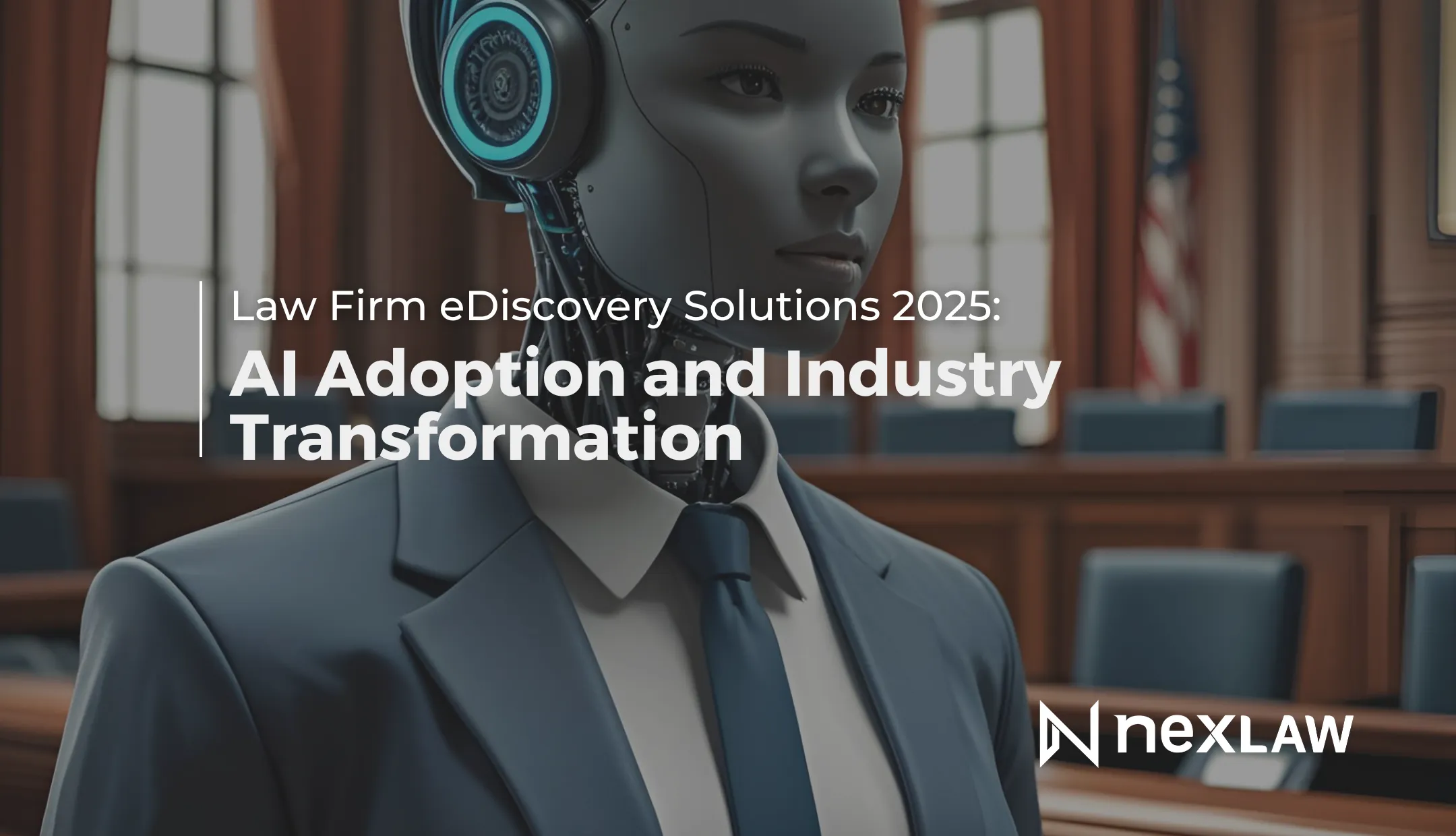
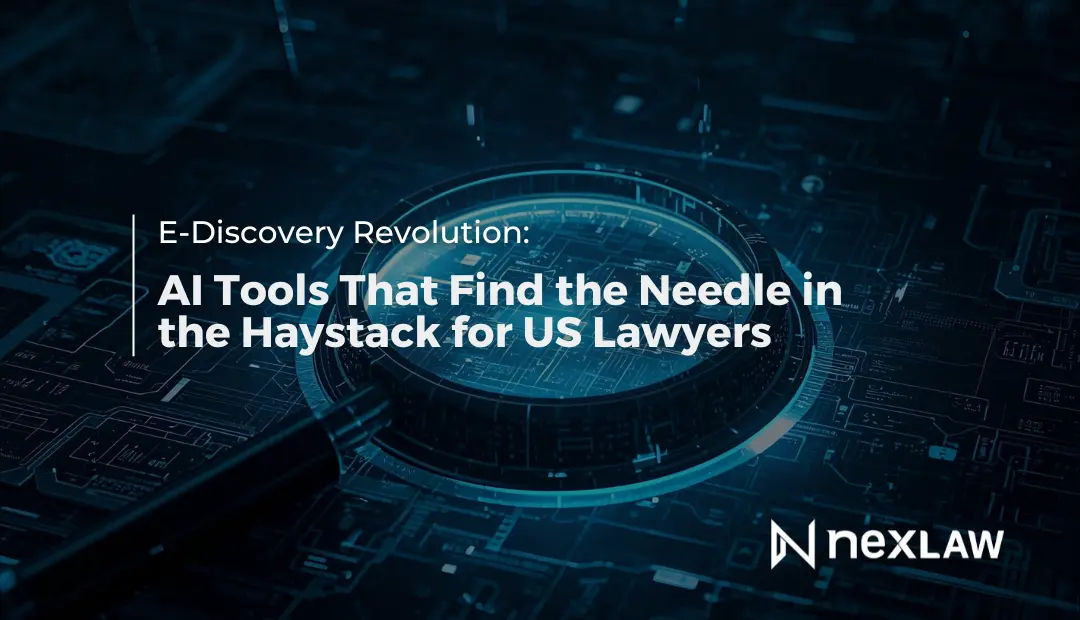
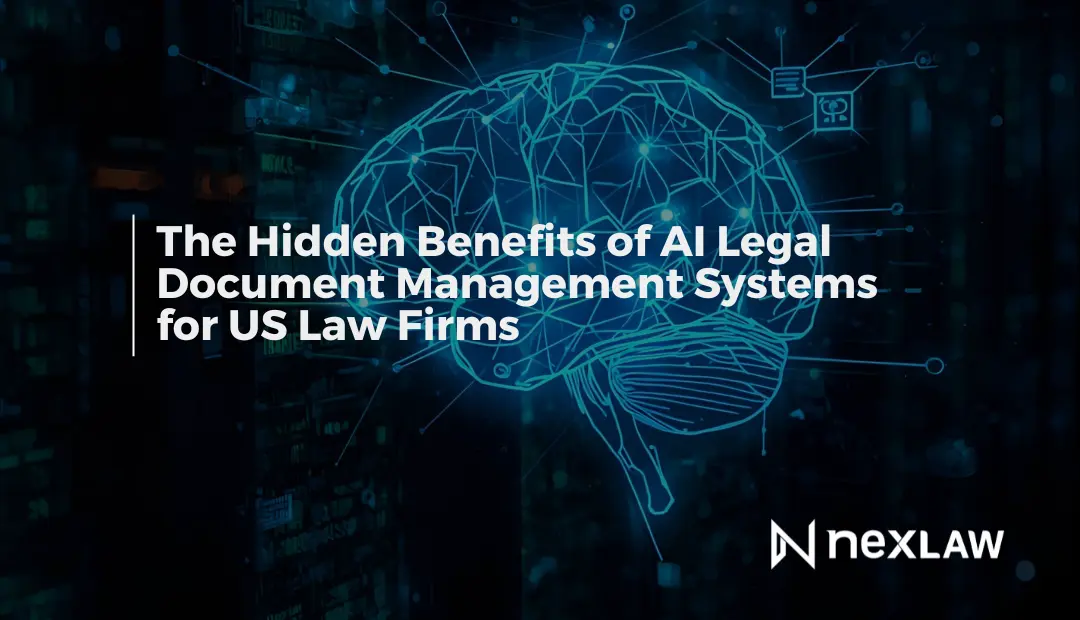
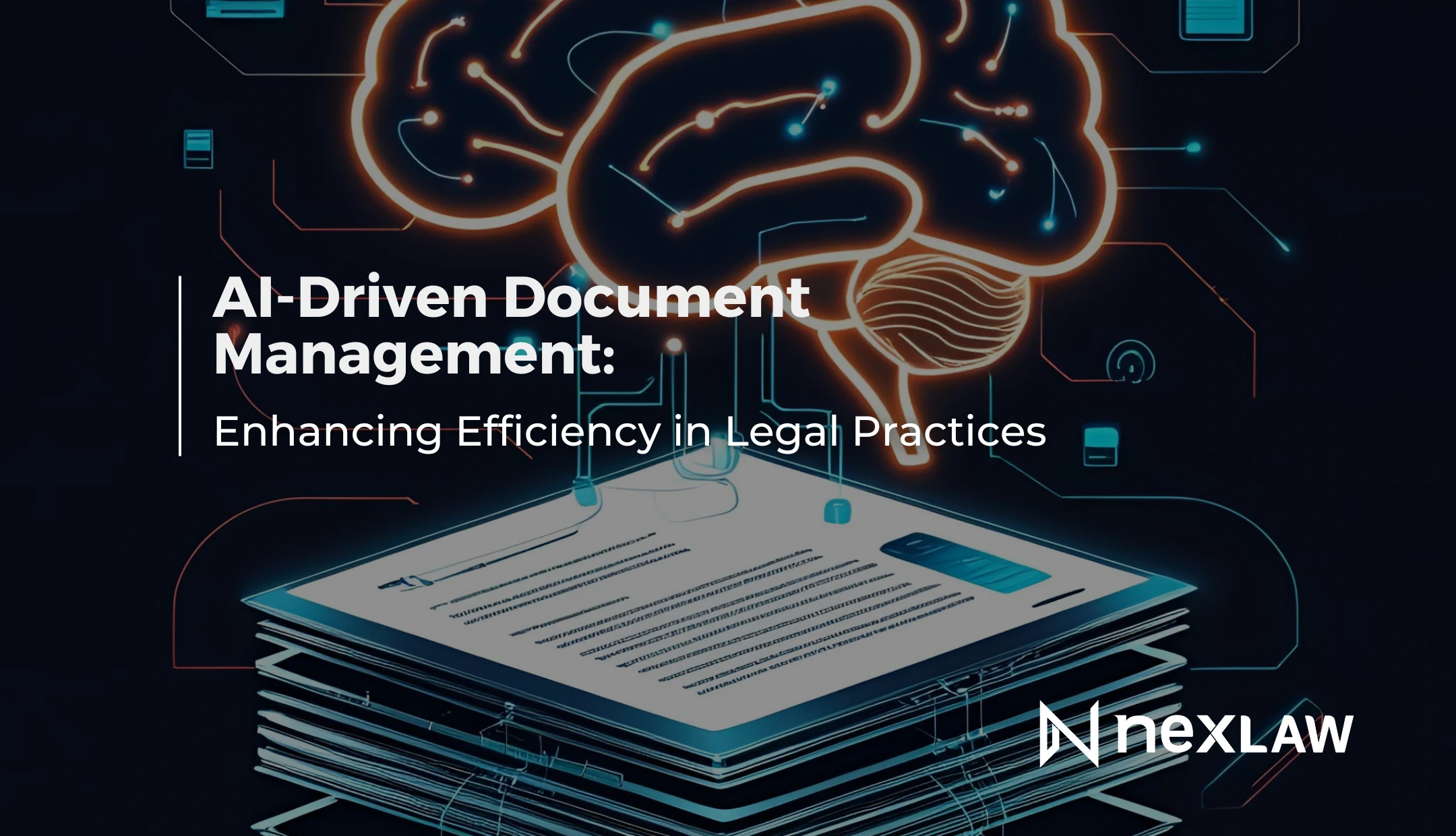
.webp)
